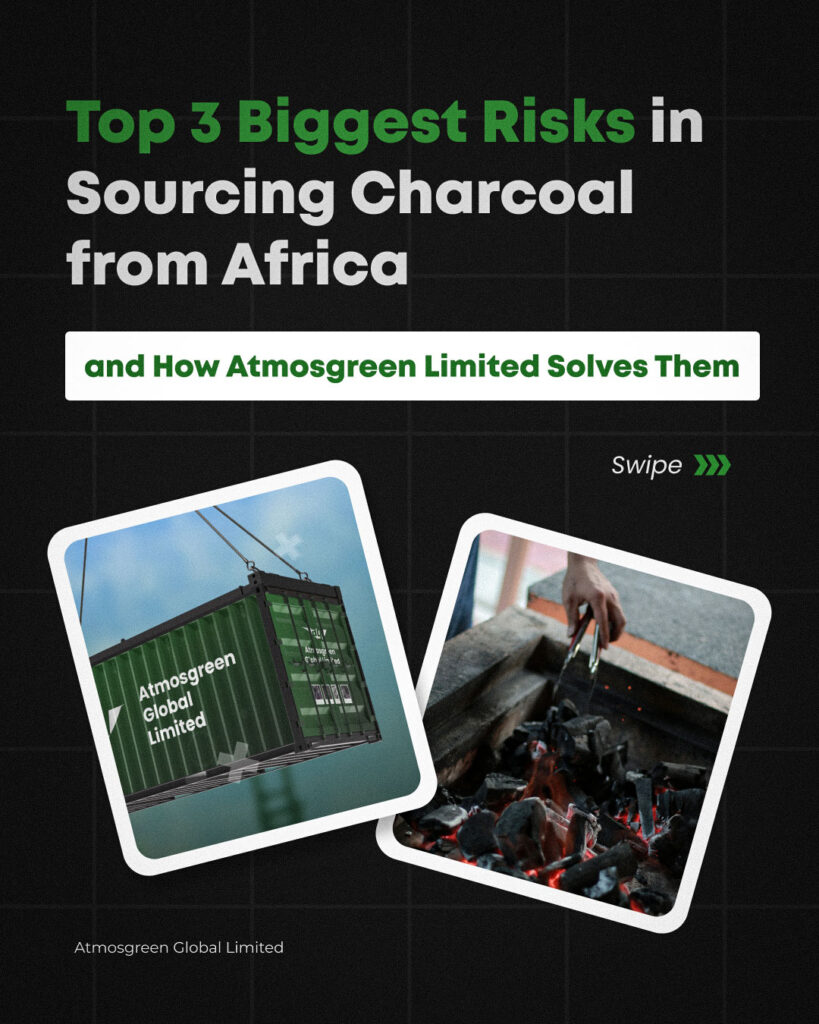
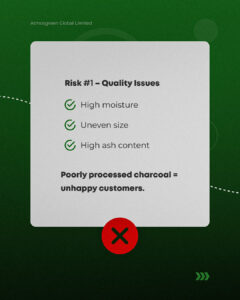
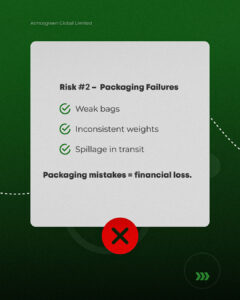
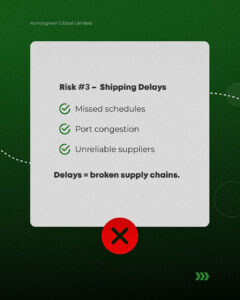
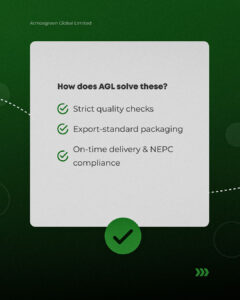
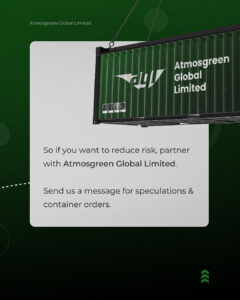
Africa is one of the world’s largest suppliers of charcoal, with Nigeria, Ghana, and Tanzania contributing significantly to exports. According to the International Trade Centre (ITC), Europe alone imports over 800,000 tons of charcoal annually, with Africa being a major source. Yet, importers often face challenges that can impact profitability and trust. Here are the three biggest risks—and how Atmosgreen Global Limited ensures solutions.
1. Shipping Delays
International shipping is complex, especially for bulk commodities like charcoal. Delays can arise from port congestion, customs clearance, or poor logistics planning. In fact, a 2023 UNCTAD report revealed that African ports experience average container dwell times of 15–20 days, compared to the global average of 4–5 days. For importers, this means missed delivery deadlines and frustrated clients.
How Atmosgreen Solves It:
Atmosgreen Global Limited partners with reliable freight forwarders and maintains a proactive documentation process to minimize clearance delays. By pre-arranging logistics and leveraging long-term port relationships in Nigeria, we ensure shipments move on schedule. Our clients enjoy predictable delivery timelines—critical for maintaining supply chain reliability.
2. Packaging Failures
Charcoal is fragile, and poor packaging often results in breakage, dust, and reduced usable product. Studies show that up to 15% of charcoal shipments can degrade into fines if not packed properly, leading to significant financial losses for importers. Furthermore, packaging that doesn’t meet international standards risks rejection at destination ports.
How Atmosgreen Solves It:
We use export-grade polypropylene (PP) bags and adopt double-stitching techniques to prevent spillage. Our packaging is tailored to importer specifications (10 kg, 15 kg, 20 kg, or bulk jumbo bags), ensuring maximum protection during long-haul shipping. By reducing product breakage, we safeguard both value and customer satisfaction.
3. Quality Issues
Inconsistent quality is the biggest concern for buyers. Oversized lumps, excessive fines, or charcoal with high moisture content compromise performance. For example, restaurant-grade charcoal in Europe typically requires sizes between 20–80 mm and moisture content below 5%. Failure to meet these benchmarks leads to rejected shipments, customer complaints, and reputational damage.
How Atmosgreen Solves It:
Atmosgreen applies a rigorous quality control process:
Pre-export grading to ensure uniform lump sizes.
Moisture testing to maintain international standards.
Strict selection of hardwood species for higher calorific value and longer burn times.
Our production facilities are equipped with sieving machines and trained staff who guarantee consistent, export-ready quality every time.
Conclusion
Sourcing charcoal from Africa comes with inherent risks—shipping delays, packaging failures, and quality issues—but these challenges are avoidable with the right partner. Atmosgreen Global Limited has built its reputation on solving these problems through proactive logistics, durable packaging, and uncompromising quality control.
For importers seeking reliability in a competitive market, Atmosgreen isn’t just a supplier—it’s a guarantee.